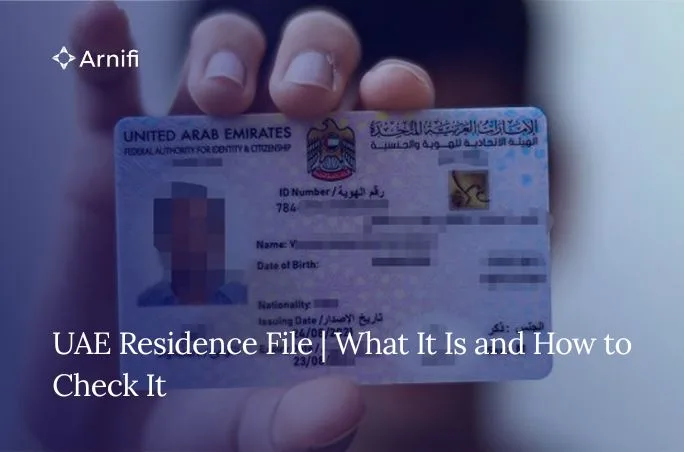Understanding the Taxation System in the UAE
by Manu Midha Nov 23, 2023  5 MIN READ
5 MIN READ
The taxation system in the UAE has attracted many businesses from across the globe.
This has allowed the UAE to emerge as a global hub for businesses and investments. Read ahead to explore its unique features and highlight its role in fostering economic growth and stability.

Key Features of the Taxation System in UAE
The United Arab Emirates is known for having a progressive and competitive taxation system. This system is designed to attract foreign investment and promote economic activity in the country. One of the features that sets apart the taxation system in the UAE is the absence of personal income taxes. Hence, it indicates that UAE residents are not liable to pay any taxes on their personal incomes, wages, or investment income.
Additionally, the country also offers corporate tax at a rate of 9%. This rate is considered to be the lowest in the world. This tax is however applicable to businesses whose total taxable income surpasses AED 375,000 in a financial year. However, the UAE still offers multiple exemptions and tax reliefs. This makes the country a great place to start a business.
Value Added Tax (VAT)
VAT is a consumption-based tax in UAE, levied on the supply of goods and services and it was implemented in 2018. This tax was introduced relatively at a lower rate of 5%. However, not all businesses are required to register for VAT. According to the Federal Tax Authority (FTA) of the country, a business having a total turnover of over AED 375,000 must mandatorily register itself for VAT.
On the other hand, companies wanting to enjoy tax benefits and enhanced credibility of their business can also choose to voluntarily register their business for VAT. This is only if such companies meet a threshold of over AED 187,500. Generally, businesses registered for VAT should:
- Charge VAT on the taxable supply of goods
- Reclaim VAT on the services or goods that they purchase
- Maintain all the records for government purposes
Excise Tax
Excise tax is levied only on specific goods and services that are deemed to pose a serious threat to human health and the environment. Excise goods include carbonated drinks and beverages, tobacco products, sweeteners, etc. The tax rate on these specific goods varies depending on the category. Businesses should register themselves for excise tax if:
- They import excise goods into the country
- The goods produced are consumed in the UAE
- Sometimes stockpiling the goods in the country
Import and Export Taxes in the UAE
These taxes play a distinct role in the UAE’s international trade policy. While import tax is levied on goods entering the country to protect the locally produced goods, export tax on the other hand is charged at zero rate tax.
The main reason is primarily to allow businesses to expand their global reach. Charging zero-rated export tax also promotes economic diversification, promoting the UAE as an important hub for trading and businesses.
Also Read: Corporate tax for foreign owned company in Saudi Arabia
Double Taxation and Double Tax Treaties
How DTTs have an impact on the UAE economy
Double taxation in the UAE occurs when a person is subject to tax in two or more countries on the same income or asset. To address this, the UAE has entered into Double Tax Treaties with countries that aim to eliminate tax burdens by providing clear rules for allocating tax rights. Double tax treaties also play an important role in promoting cross-border investment and trade. This makes the UAE an attractive destination for multinational corporations.
DTTs create a more predictable and stable tax environment for businesses across borders. This encourages investment and trade flows. These treaties also facilitate the exchange of information between tax authorities. This enhances tax cooperation in the country, therefore reducing the risk of tax evasion.
Wrapping up

The taxation system in the UAE is a carefully designed framework that balances the need for revenue generation with the promotion of economic growth and investment. Even though the UAE offers a competitive taxation system, it has established itself as an attractive destination for businesses and individuals wanting to expand their global reach.
The country’s commitment to international tax cooperation through DTT further enhances its attractiveness as a partner for cross-border trading and investment.
About Arnifi
Arnifi is digital first Corporate service provider helping companies enter the Middle East region, starting with UAE and Saudi Arabia markets. Founded and backed by professionals from Amazon, Souq and other large companies operating in KSA – the team understands what it takes to succeed as a startup in both UAE and Saudi Arabian markets, apart from going through the setup process multiple times. Arnifi will provide a truly digital experience to entry and scale up of companies both UAE and Saudi Arabia. The Arnifi promise is simple, yet revolutionary, use technology and a great team to provide transparency, efficiency and great customer experience in the whole process. Check out at – www.Arnifi.com for more details.
ALSO READ: Temporary licenses and its performance for foreign companies in KSA
Top UAE Packages

Related Articles
Top UAE Packages



